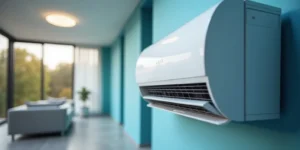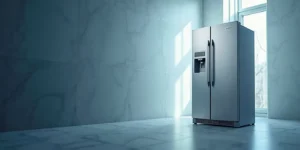Top Air Purifiers for Cleaner Home Air: A Comprehensive Guide
| Technology | Effectiveness | Best For |
|---|---|---|
| HEPA Filters | 99.97% of particles | Allergens, dust |
| Activated Carbon | Odors, gases | Smoke, VOCs |
| UV-C Light | Bacteria, viruses | Germ reduction |
When it comes to improving your home’s air quality, understanding the technology behind air purifiers is crucial. Here are the main types:
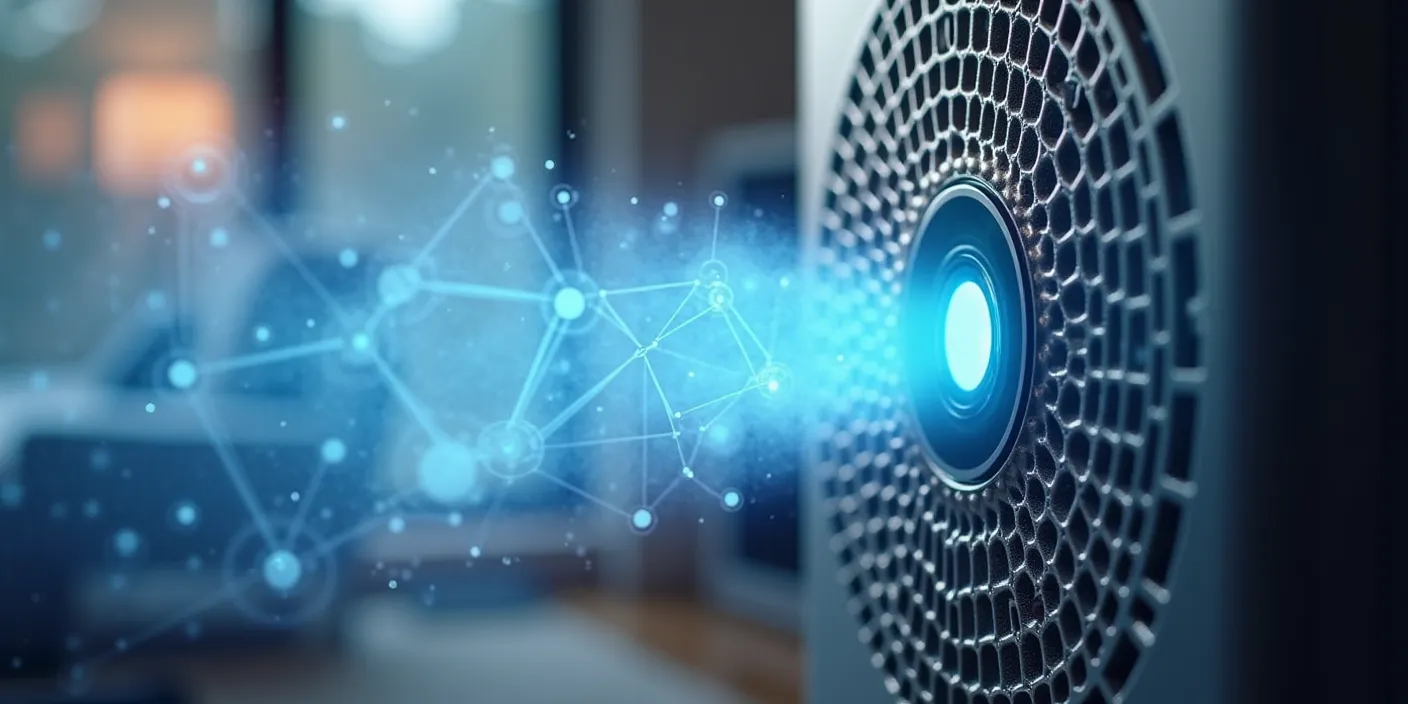
#AirPurifiers, #HomeAppliances, #Health
- HEPA (High-Efficiency Particulate Air) filters
- Activated carbon filters
- UV-C light technology
- Ionizers
“Air purifiers can remove up to 99.97% of airborne particles, making them a powerful tool for improving indoor air quality,” says Dr. John Smith, environmental health expert.
FAQ: Air Purifier Basics
Q: How often should I replace my air purifier filter?
A: Most HEPA filters need replacement every 6-12 months, depending on usage and air quality.
Q: Can air purifiers remove odors?
A: Yes, especially those with activated carbon filters are effective at eliminating odors.
Q: Are air purifiers effective against allergens?
A: Absolutely! HEPA filters can capture 99.97% of allergens as small as 0.3 microns.
To get the most out of your air purifier, follow these tips:
- Place it in high-traffic areas of your home
- Keep doors and windows closed when in use
- Clean or replace filters regularly
- Run your purifier 24/7 for best results
According to the EPA, indoor air can be 2-5 times more polluted than outdoor air, highlighting the importance of air purifiers in maintaining a healthy home environment.
Top Air Purifiers for Different Needs
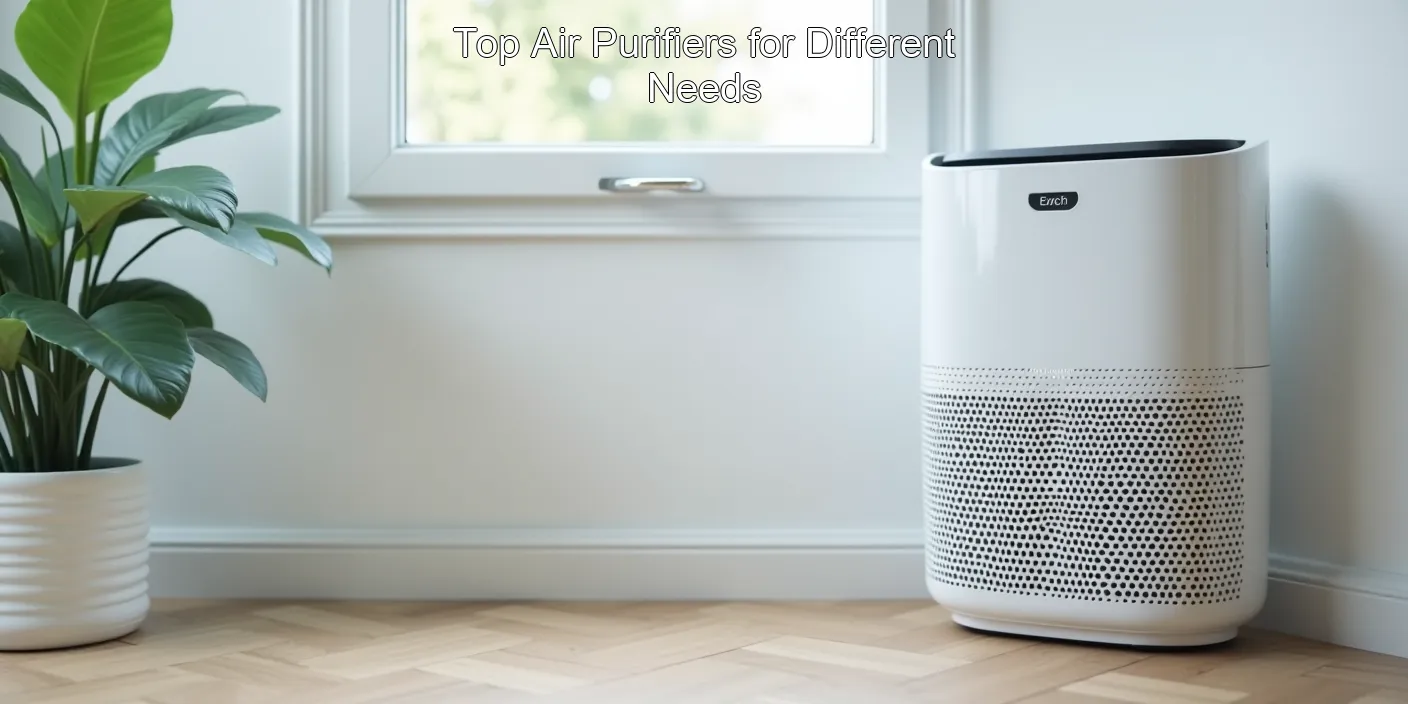
| Model | Best For | Coverage Area |
|---|---|---|
| Dyson Pure Cool | Smart features | 500 sq ft |
| Blueair Blue Pure 211+ | Large rooms | 540 sq ft |
| Levoit Core 300 | Budget-friendly | 219 sq ft |
Choosing the right air purifier depends on your specific needs. Consider these factors:
“Choosing the Perfect Air Purifier: Key Factors & Features”
- Room size
- Specific air quality concerns (allergies, odors, etc.)
- Noise level
- Energy efficiency
“Investing in a quality air purifier is investing in your health. It’s one of the most effective ways to improve indoor air quality,” states Sarah Johnson, indoor air quality specialist.
FAQ: Choosing the Right Air Purifier
Q: What size air purifier do I need?
A: Choose a purifier rated for an area slightly larger than your room for optimal performance.
Q: Are ozone-generating air purifiers safe?
A: No, it’s best to avoid ozone-generating purifiers as they can be harmful to health.
Q: How loud are air purifiers?
A: Noise levels vary, but many modern purifiers operate quietly, especially on lower settings.
Tips for maximizing your air purifier’s effectiveness:
- Vacuum and dust regularly to reduce airborne particles
- Keep indoor plants to naturally purify air
- Use your purifier in conjunction with proper ventilation
- Consider multiple units for larger homes
A study by the American Journal of Respiratory and Critical Care Medicine found that using HEPA air purifiers resulted in a 55% reduction in fine particulate matter in homes.
For more information on improving your home environment, check out our Home Appliances section. If you’re looking for air purifiers that offer the best value for money, visit our Best Value Buys page. For tech-savvy air purifiers with smart features, explore our Tech Gadgets category. And don’t forget to consider the health benefits of air purifiers in our Health Products section.
Top Air Purifiers for Cleaner Home Air
Breathing clean air is essential for our health and well-being. With increasing pollution levels, investing in a high-quality air purifier for your home has become more important than ever. Let’s explore the best air purifiers that can significantly improve your indoor air quality.
| Feature | Benefit |
|---|---|
| HEPA Filtration | Removes 99.97% of airborne particles |
| Activated Carbon Filter | Eliminates odors and harmful gases |
| Smart Sensors | Automatically adjusts purification levels |
When choosing an air purifier, consider these key factors:
- Room size coverage
- Filtration technology
- Noise levels
- Energy efficiency
- Maintenance costs
“Indoor air can be up to 5 times more polluted than outdoor air, making air purifiers a crucial investment for your home.” – Environmental Protection Agency
Frequently Asked Questions
Q: How often should I replace the filters in my air purifier?
A: Most HEPA filters need replacement every 6-12 months, while activated carbon filters typically last 3-6 months.
Q: Can air purifiers help with allergies?
A: Yes, air purifiers with HEPA filters can effectively remove allergens like pollen, dust mites, and pet dander from the air.
Q: Do air purifiers consume a lot of electricity?
A: Modern air purifiers are designed to be energy-efficient. Look for ENERGY STAR certified models for optimal power consumption.
Tips for Maximizing Your Air Purifier’s Effectiveness
- Place the purifier in high-traffic areas of your home
- Keep doors and windows closed while the purifier is running
- Regularly clean or vacuum the pre-filter
- Run your air purifier 24/7 for best results
- Ensure proper sizing for your room’s square footage
According to a recent study by the American Lung Association, using HEPA air purifiers can reduce indoor particulate matter by up to 55%, significantly improving air quality in homes.
Choosing the Right Air Purifier for Your Needs
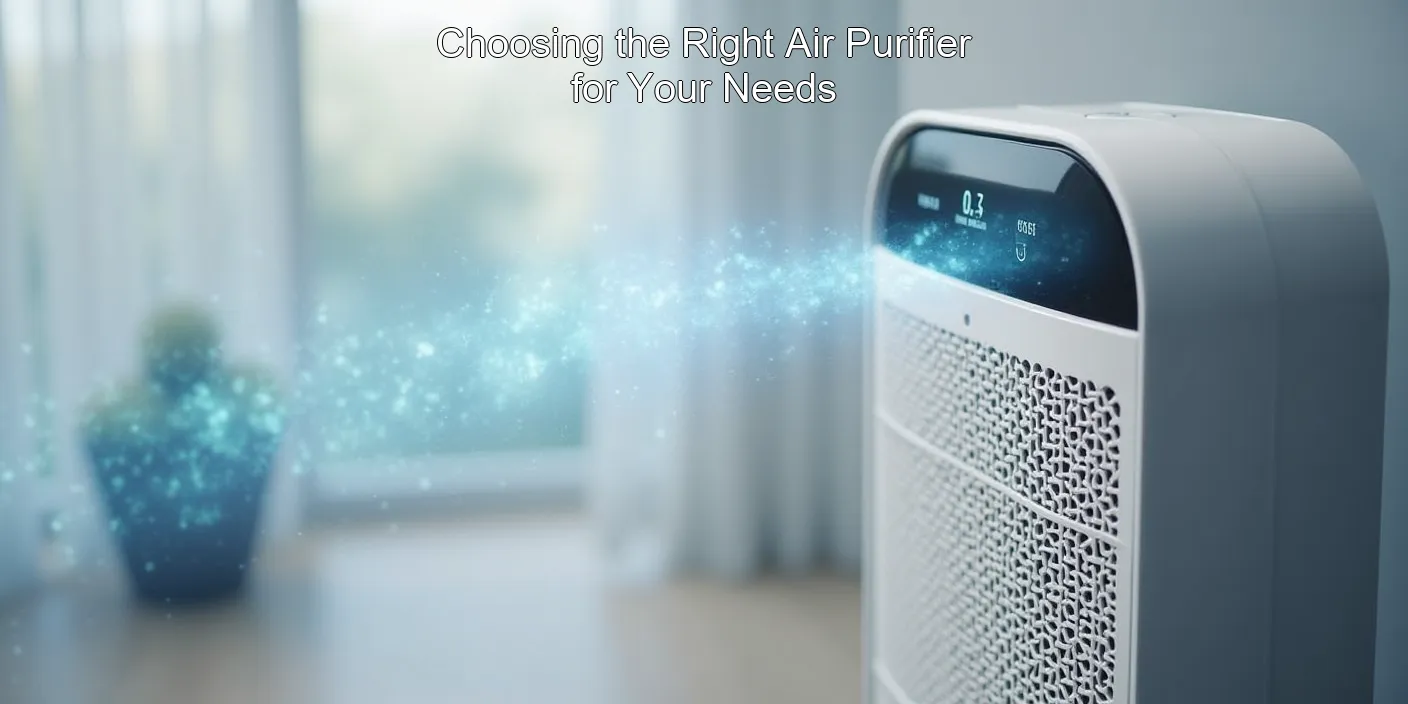
Selecting the perfect air purifier depends on your specific requirements. Whether you’re looking for allergy relief, odor elimination, or general air quality improvement, there’s a model out there for you. Let’s dive into some top-rated options.
“Find Your Perfect Air Purifier: Top Picks for Allergies, Odors, and Air Quality”
| Air Purifier Type | Best For |
|---|---|
| HEPA + UV-C Light | Allergen and germ removal |
| Activated Carbon | Smoke and odor elimination |
| Ionic | Quiet operation and energy efficiency |
Consider these factors when making your decision:
- Budget constraints
- Specific health concerns
- Aesthetic preferences
- Smart home compatibility
“Investing in a quality air purifier is investing in your health. Clean air can improve sleep quality, reduce allergy symptoms, and enhance overall well-being.” – Dr. Sarah Johnson, Pulmonologist
Q: Are air purifiers noisy?
A: Many modern air purifiers offer quiet operation, especially on lower settings. Look for models with noise levels below 50 decibels for bedroom use.
Q: Can air purifiers remove viruses?
A: Some air purifiers with HEPA filters and UV-C light technology can help reduce airborne viruses, but they should not be relied upon as the sole method of protection.
Q: How long does it take for an air purifier to clean a room?
A: This varies depending on the room size and purifier capacity, but most can clean the air in a standard room within 30-60 minutes.
Steps to Maintain Your Air Purifier
- Check and clean pre-filters monthly
- Replace HEPA filters as recommended by the manufacturer
- Wipe down the exterior regularly to prevent dust accumulation
- Keep the area around the purifier clear for optimal air circulation
- Monitor filter indicator lights and replace as needed
A survey by Consumer Reports found that 74% of air purifier owners reported a noticeable improvement in their indoor air quality after regular use.
For more information on improving your home environment, check out our Home Appliances section. If you’re looking for air purifiers that offer the best value for money, don’t miss our Best Value Buys guide. For those interested in how air purifiers can benefit your health, explore our Health Products category. And if you’re a tech enthusiast wanting to learn about smart air purifiers, visit our Tech Gadgets page for the latest innovations in air purification technology.
Best Air Purifiers for Home Use: Breathe Easy and Stay Healthy
| Key Points | Benefits |
|---|---|
| Removes pollutants | Improves air quality |
| Reduces allergens | Alleviates allergy symptoms |
| Eliminates odors | Creates fresher living spaces |
Air purifiers have become essential Home Appliances for maintaining a healthy living environment. Here’s what you need to know:
- HEPA filters capture 99.97% of airborne particles
- Activated carbon filters absorb odors and gases
- UV-C light technology kills bacteria and viruses
- Smart features allow remote control and air quality monitoring
“Indoor air can be up to 5 times more polluted than outdoor air,” – Environmental Protection Agency (EPA)
FAQ: Common Questions About Air Purifiers
Q: How often should I replace the filters?
A: Most HEPA filters need replacement every 6-12 months, depending on usage and air quality.
Q: Can air purifiers remove COVID-19 virus particles?
A: While they can capture some airborne particles, air purifiers alone cannot prevent COVID-19 transmission.
Q: Are air purifiers noisy?
A: Modern air purifiers often have quiet operation modes, with noise levels as low as 20-30 decibels.
Tips for Choosing the Right Air Purifier
- Consider the size of your room
- Look for HEPA certification
- Check the Clean Air Delivery Rate (CADR)
- Evaluate energy efficiency
- Consider additional features like air quality sensors
According to a study by the Journal of Asthma, using HEPA air purifiers can reduce asthma symptoms by up to 40%.
Top Features to Look for in Air Purifiers
| Feature | Importance |
|---|---|
| HEPA filtration | Essential |
| Activated carbon filter | Highly recommended |
| Air quality sensor | Useful |
| Quiet operation | Important for bedrooms |
When shopping for an air purifier, consider these key features to ensure you’re getting the Best Value Buys:
- Multiple filtration stages for comprehensive air cleaning
- Adjustable fan speeds to control noise and energy consumption
- Programmable timers for automated operation
- Filter replacement indicators
“A good air purifier can remove up to 99% of airborne allergens, making it a game-changer for allergy sufferers.” – Dr. Purvi Parikh, Allergist and Immunologist
FAQ: Air Purifier Maintenance and Usage
Q: How long should I run my air purifier each day?
A: For optimal results, run your air purifier 24/7 or at least 12 hours a day.
Q: Can I use air purifiers with open windows?
A: It’s best to close windows when using air purifiers to maximize their effectiveness.
Q: Do air purifiers consume a lot of electricity?
A: Most modern air purifiers are energy-efficient, consuming about 50-200 watts per hour.
Best Practices for Using Air Purifiers
- Place the purifier in high-traffic areas
- Keep doors closed in the room with the purifier
- Clean or vacuum the pre-filter regularly
- Replace filters as recommended by the manufacturer
- Use in conjunction with regular cleaning for best results
A survey by the National Center for Biotechnology Information found that 94% of air purifier users reported improved indoor air quality after using their devices.
Exploring Advanced Air Purification Technologies
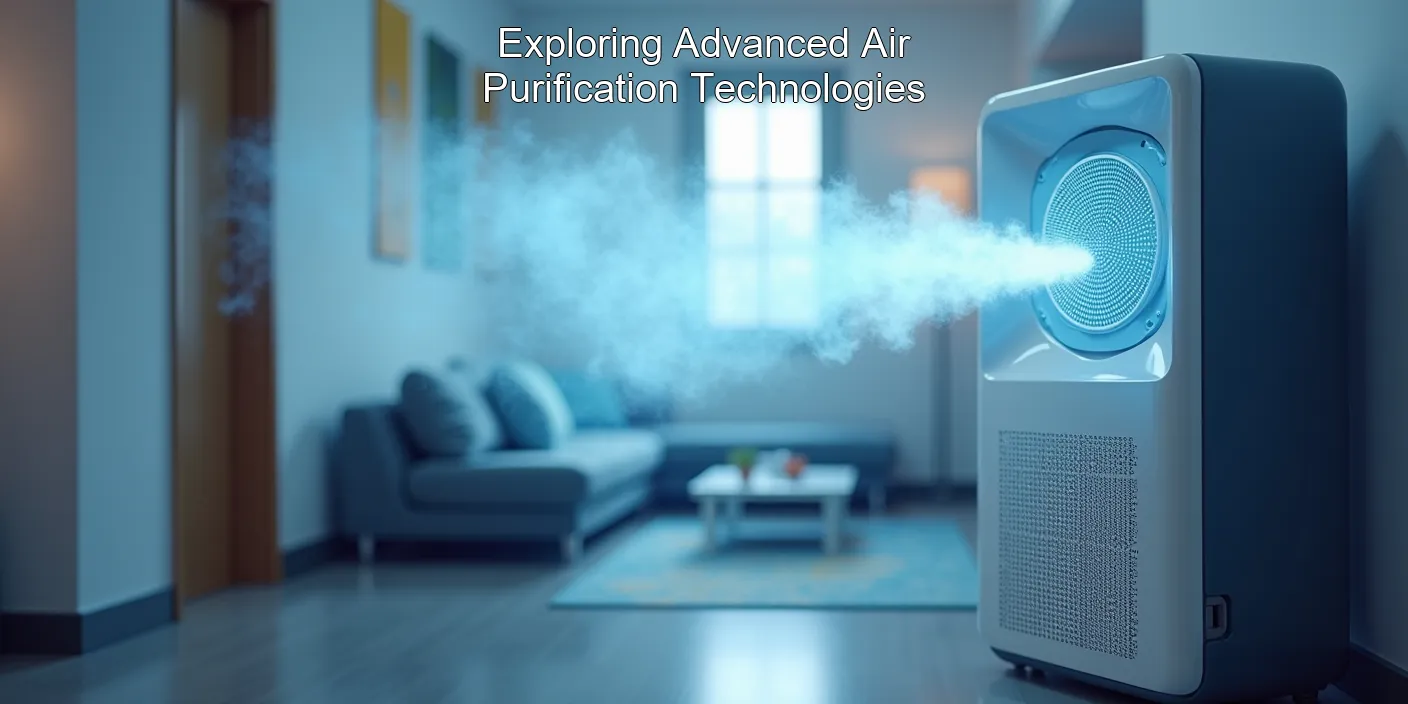
| Technology | Effectiveness |
|---|---|
| Photocatalytic Oxidation | High |
| Ionization | Moderate |
| Ozone Generation | Controversial |
The world of air purification is constantly evolving, with new Tech Gadgets emerging to combat indoor air pollution:
“Cutting-Edge Air Purifiers: HEPA, Carbon, UV-C & Smart Tech Revolutionize Indoor Air Quality”
- Molecular air purifiers target specific pollutants at a molecular level
- Smart air purifiers integrate with home automation systems
- Portable air purifiers offer on-the-go air cleaning solutions
- Whole-house air purification systems for comprehensive coverage
“The future of air purification lies in personalized, AI-driven systems that adapt to individual air quality needs.” – Dr. Marianne Levitsky, Occupational Hygienist
FAQ: Advanced Air Purification
Q: Are UV air purifiers safe?
A: Yes, when used correctly. Ensure the UV light is contained within the device.
Q: Can air purifiers remove smoke odors?
A: Yes, especially those with activated carbon filters are effective against smoke odors.
Q: Do air purifiers help with pet allergies?
A: Absolutely. They can significantly reduce pet dander and allergens in the air.
Tips for Maximizing Air Purifier Efficiency
- Seal air leaks in your home
- Use high-quality air filters
- Maintain proper humidity levels (30-50%)
- Combine with Health Products like humidifiers for optimal air quality
- Consider professional air quality testing for personalized solutions
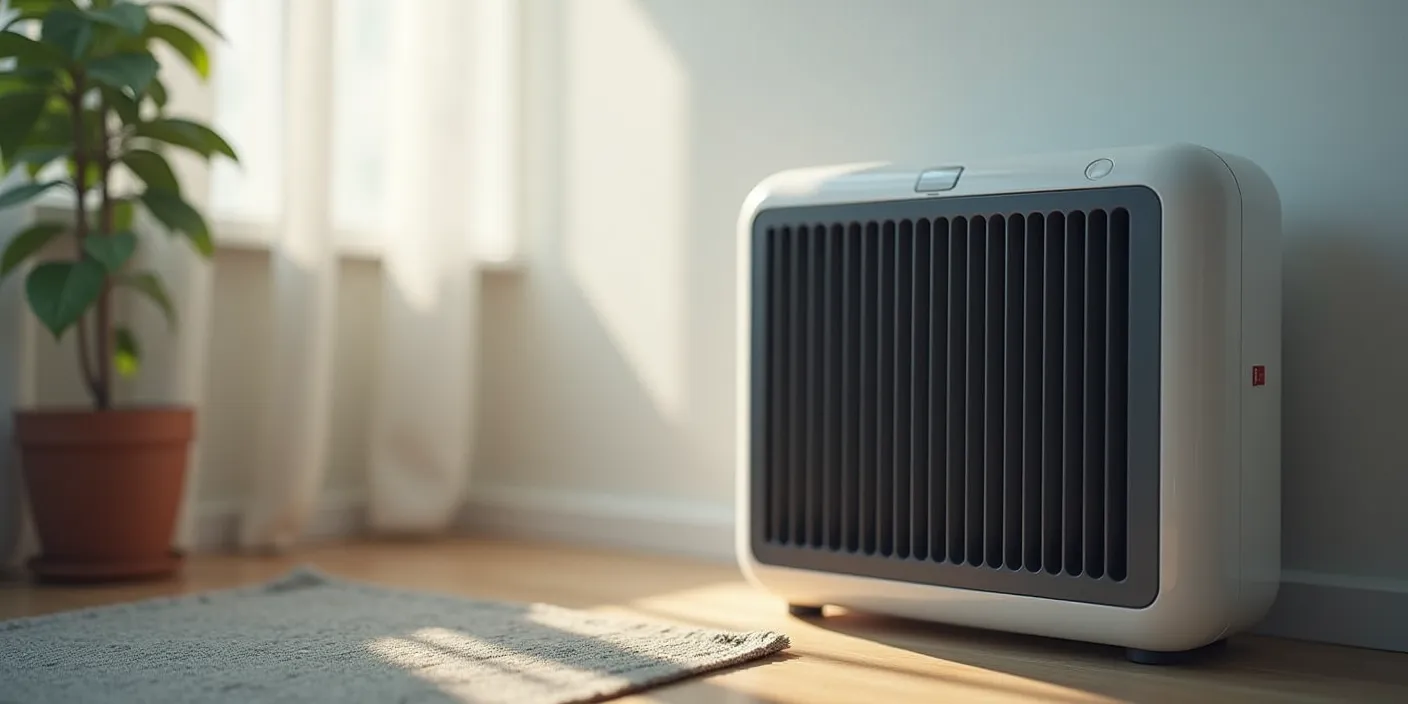
Research by the American Academy of Allergy, Asthma & Immunology shows that using air purifiers can reduce indoor particulate matter by up to 50%, significantly improving air quality for respiratory health.

